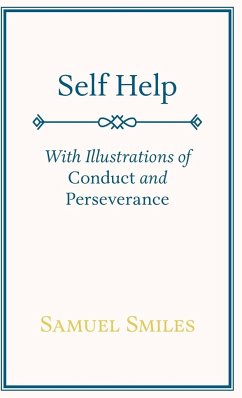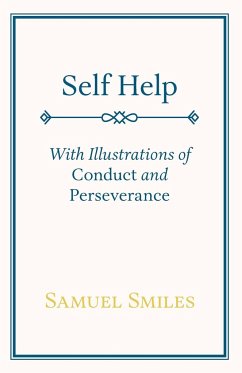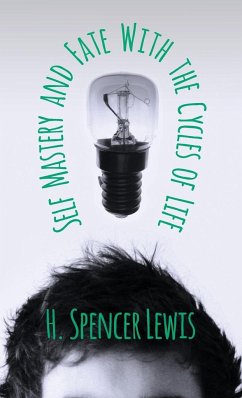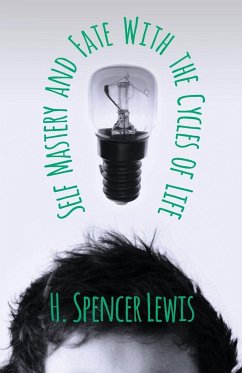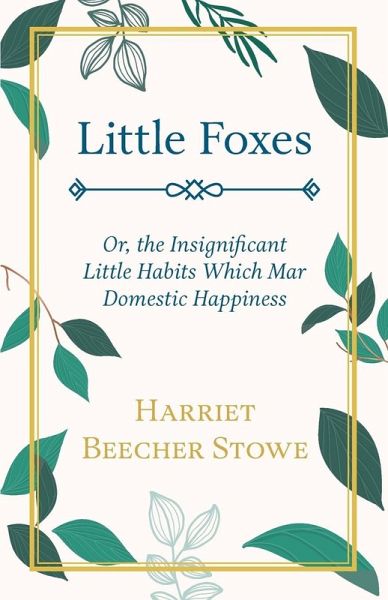
Little Foxes - Or; the Insignificant Little Habits Which Mar Domestic Happiness

PAYBACK Punkte
11 °P sammeln!
Self-help books aim to help the reader with problems, offering them clear and effective guidance on how obstacles can be passed and solutions found-especially with regard to common issues and day-to-day life. Such books take their name from the 1859 best-selling "Self-Help" by Samuel Smiles, and are also often referred to as "self-improvement" books. First published in 1866, "Little Foxes" is a vintage self-help book that concentrates on maintaining a happy home life by avoiding bad habits and destructive mannerisms. Contents include: "Fault-finding", "Irritability", "Repression", "Self-will",...
Self-help books aim to help the reader with problems, offering them clear and effective guidance on how obstacles can be passed and solutions found-especially with regard to common issues and day-to-day life. Such books take their name from the 1859 best-selling "Self-Help" by Samuel Smiles, and are also often referred to as "self-improvement" books. First published in 1866, "Little Foxes" is a vintage self-help book that concentrates on maintaining a happy home life by avoiding bad habits and destructive mannerisms. Contents include: "Fault-finding", "Irritability", "Repression", "Self-will", "Intolerance", "Discourteousness", and "Exactingness". This timeless volume contains a wealth of useful information that, if followed, will ensure a happy home life for all involved. Many vintage books such as this are becoming increasingly scarce and expensive. We are republishing this volume now in an affordable, modern, high-quality edition complete with the original text and artwork.






